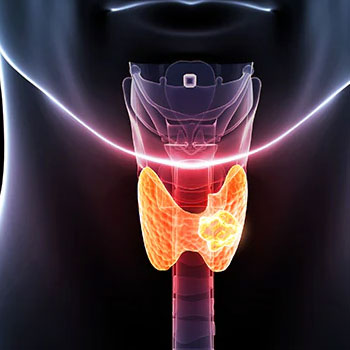endocrine disorders
What are Endocrine Disorders?
Endocrine disorders are medical conditions that occur due to the improper functioning of the endocrine system, which is a network of glands that produce and release hormones. Hormones are chemical messengers that regulate various bodily functions, including metabolism, growth, reproduction, and mood. For diabetic patients, understanding endocrine disorders is crucial as diabetes itself is an endocrine disorder, and it can be influenced by or complicate other endocrine conditions.
Understanding the Endocrine System
The endocrine system consists of several glands, each playing a unique role in maintaining the body’s internal balance. These glands include
- Pancreas: Produces insulin and glucagon, which regulate blood sugar levels.
- Thyroid: Regulates metabolism through the release of thyroid hormones
- Adrenal glands: Produce hormones like cortisol and adrenaline, which help the body respond to stress
- Pituitary gland: Often termed the "master gland," it controls other endocrine glands and releases growth hormone
- Parathyroid glands: Regulate calcium levels in the blood
- Gonads (ovaries and testes): Produce sex hormones that influence reproductive functions
- Pineal gland: Produces melatonin, which affects sleep patterns

Common Endocrine Disorders
There are several types of endocrine disorders, each affecting different glands and resulting in varied symptoms and complications. For diabetic patients, it's essential to be aware of these conditions as they can impact diabetes management and overall health.
Diabetes Mellitus
The most prevalent endocrine disorder, characterized by high blood sugar levels due to the body's inability to produce or effectively use insulin. Type 1 diabetes is an autoimmune condition where the pancreas produces little or no insulin. Type 2 diabetes is more common and involves insulin resistance.
Thyroid Disorders
These include hypothyroidism (underactive thyroid), hyperthyroidism (overactive thyroid), and thyroid nodules. Symptoms range from weight changes and fatigue to more severe complications if untreated.
Adrenal Insufficiency
Conditions like Addison's disease result from the adrenal glands not producing enough cortisol. Symptoms include fatigue, muscle weakness, and low blood pressure.
Cushing's Syndrome
Caused by high levels of cortisol, often due to prolonged use of corticosteroid medications or tumors. Symptoms include weight gain, high blood pressure, and skin changes.
Polycystic Ovary Syndrome (PCOS)
Affects women and is characterized by irregular menstrual cycles, excessive androgen levels, and polycystic ovaries. PCOS is often associated with insulin resistance and can complicate diabetes management.
Hyperparathyroidism
Results from overactive parathyroid glands, leading to high calcium levels in the blood. Symptoms can include osteoporosis, kidney stones, and fatigue.
Importance of Early Diagnosis and Management
Early diagnosis and management of endocrine disorders are crucial, particularly for diabetic patients. Uncontrolled endocrine disorders can worsen diabetes symptoms and lead to severe complications such as cardiovascular disease, nerve damage, and vision problems. Regular screenings and monitoring can help detect issues early and allow for timely intervention.
Managing Endocrine Disorders with Diabetes
Effective management involves a multidisciplinary approach, including
- Medication: Hormone replacement therapies, insulin for diabetes, and medications to manage symptoms of specific endocrine disorders.
- Lifestyle Changes: Diet, exercise, and stress management play vital roles in controlling both diabetes and endocrine disorders.
- Regular Monitoring: Frequent check-ups with healthcare providers to monitor hormone levels and adjust treatment plans as needed
- Education and Support: Understanding the condition and staying informed about new treatments and management strategies
Endocrine disorders encompass a range of conditions affecting different glands and hormones. For diabetic patients, understanding these disorders is essential for effective disease management and maintaining overall health. Regular medical care, lifestyle adjustments, and patient education are key components in managing these complex conditions and preventing complications.
By staying informed and proactive, diabetic patients can better manage their condition and improve their quality of life. If you suspect you have an endocrine disorder, consult with your healthcare provider for a comprehensive evaluation and tailored treatment plan.
